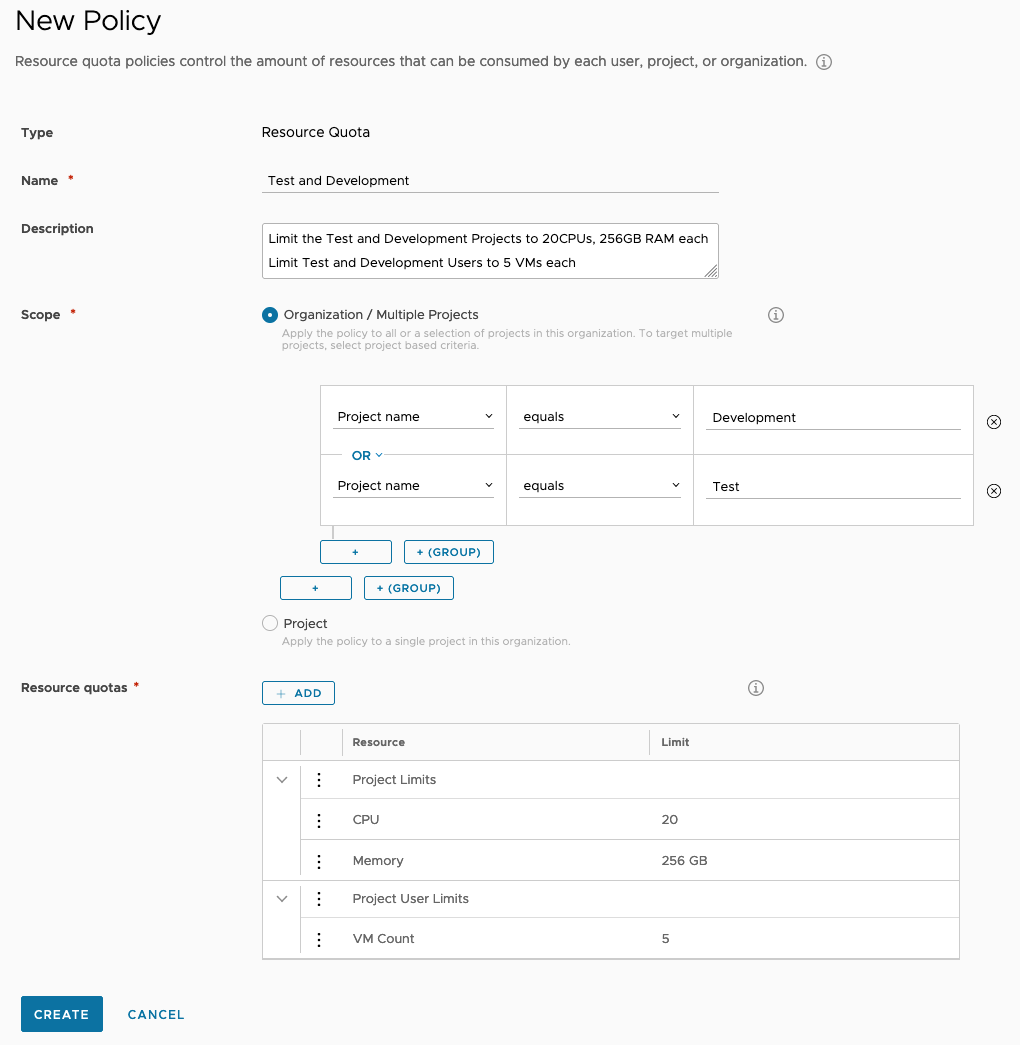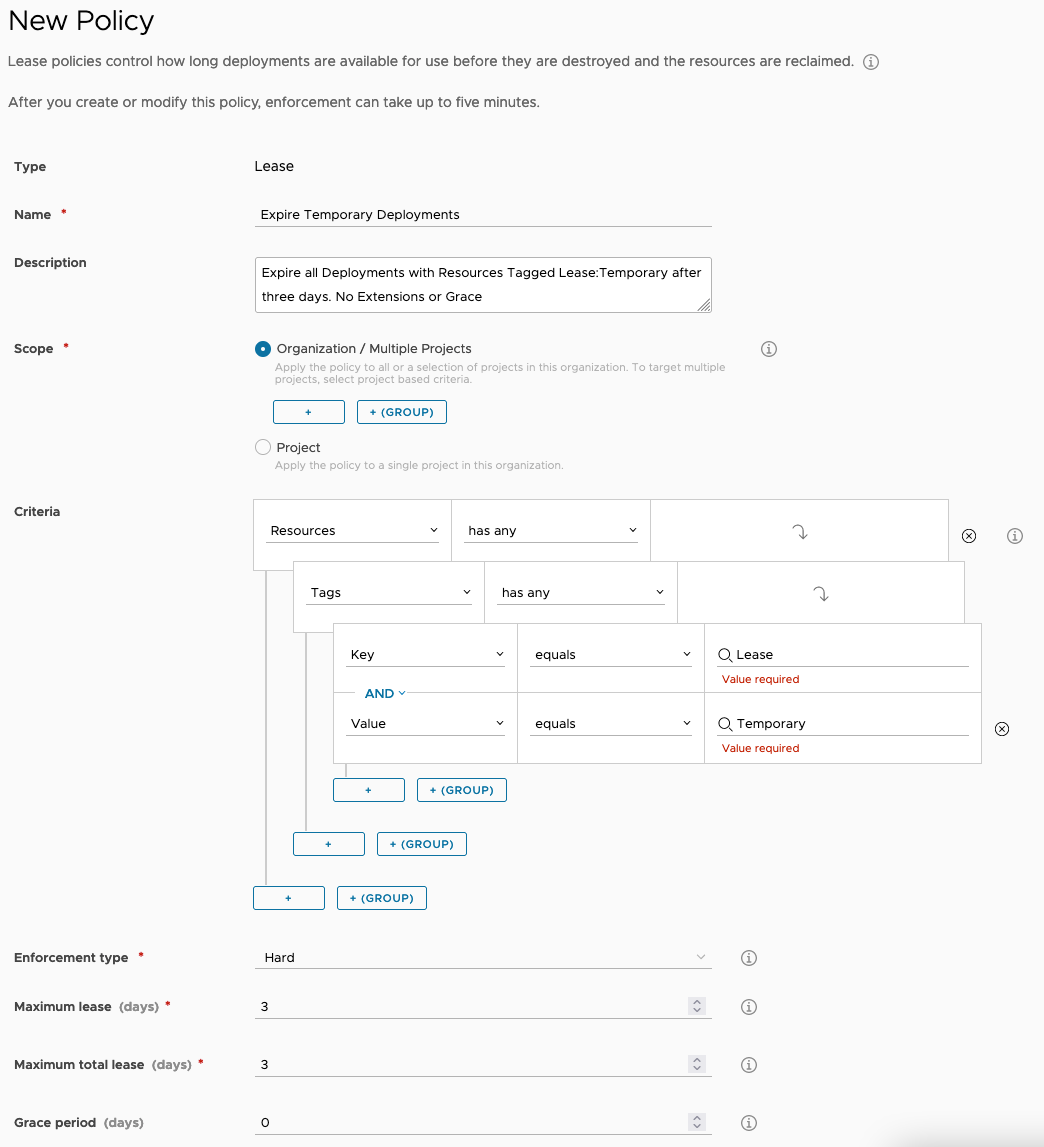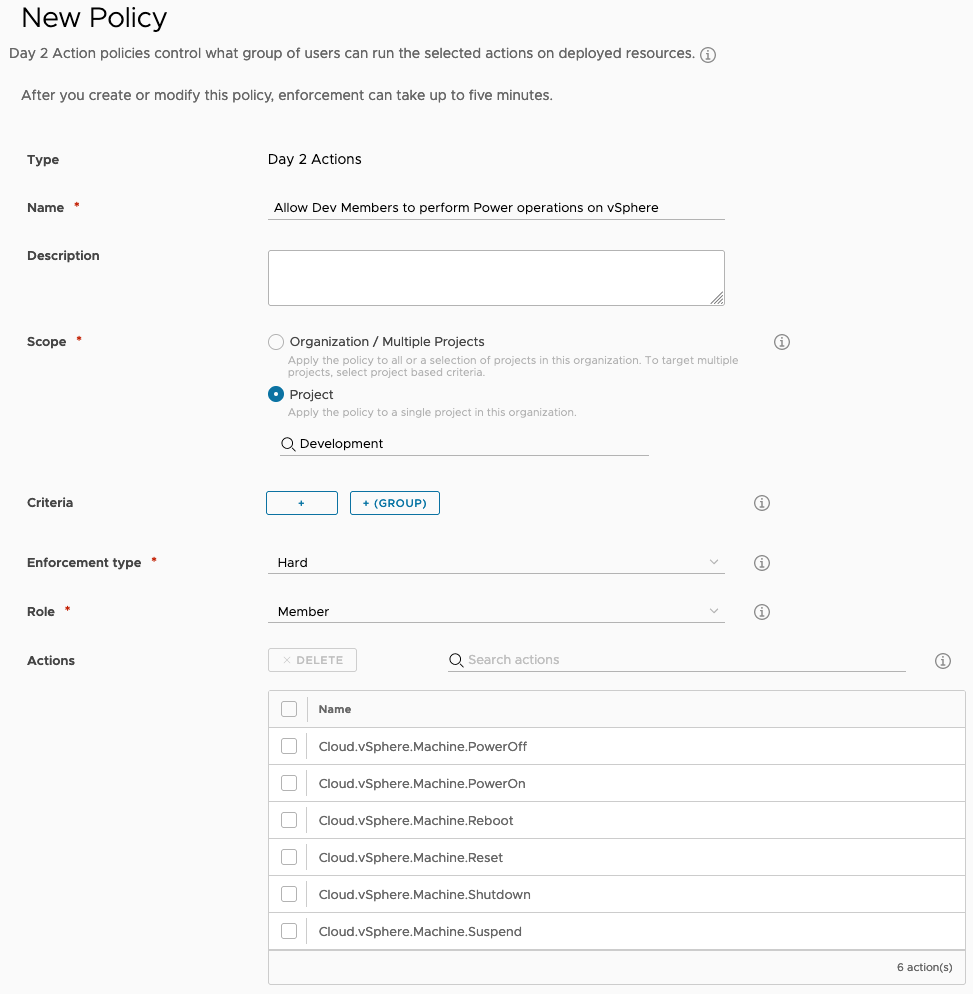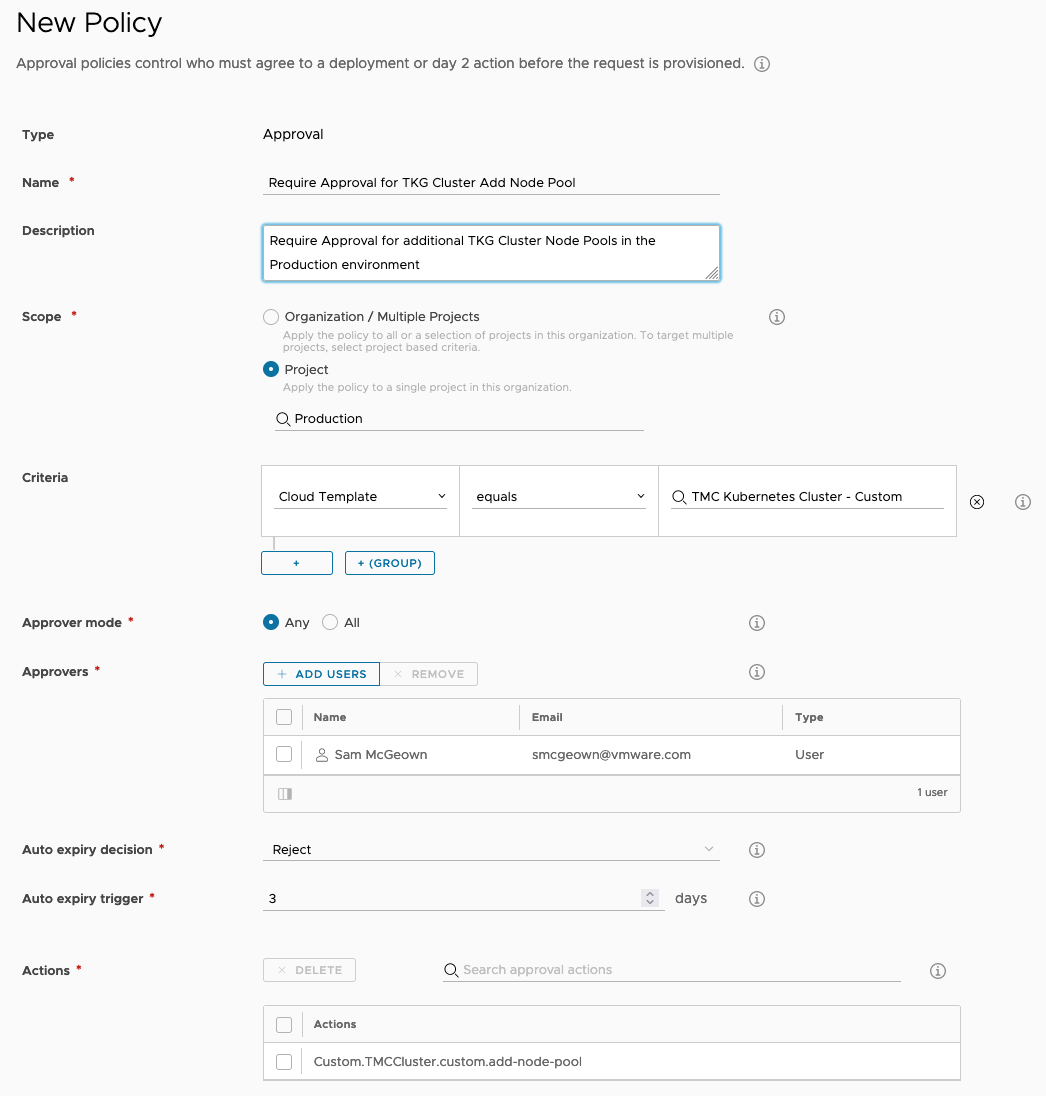Definitions
There are four types of Policy that can be created under the Definitions page.
The Policy Name, Description, Scope and Criteria configuration are common accross all four policy types:
- Name - Name of the Policy
- Description - Description of the Policy
- Scope
- Organization / Multiple Projects - apply the policy to the entire organization, or use Project selection criteria based on Project Name, ID and Description
- Project - apply the policy directly to a single Project
- Resource Quotas
- Scope Level
- Organization Limits - apply the Resource Quota to the entire Organization
- Organization User Limits - apply the Resource Quota to each user in the Organization
- Project Limits - apply the Resource Quota to the entire Project
- Project User Limits - apply the Resource Quota to each user in the Project
- Criteria - Criteria refine the scope of where the Policy applies -
- Scope Level
Resource Quota Policy
Resource quota policies control the amount of resources that can be consumed by each user, project, or organization.

- Resource - the Resource to restrict
- CPU - limit the CPU count
- VM Count - limit the number of VMs
- Memory - limit the RAM usage (GB)
- Storage - limit the storage usage (GB)
- Limit - the numerical limit of the Resource specified, for example the number of CPUs or VMs, or the ammount of RAM or Storage in GB.
Example Resource Quota Policy
In the example resource quota policy below a limit is set for both the Test and Development Projects. Each Project has a total limit of 20CPUs and 256GB RAM, and each user in either Project can deploy up to 5 VMs in total.
Lease Policy
Lease policies control how long deployments are available for use before they are destroyed and the resources are reclaimed.
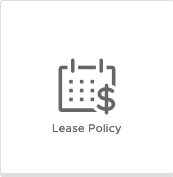
- Enforcement type - Hard, or Soft - a Hard Policy will override a conflicting Soft Policy
- Maximum Lease (days) - the number of days a deployment can be leased for, and the number of days a deployment’s lease can be renewed for
- Maximum Total Lease (days) - the maxiumum number of days a deployment can be leased for, including lease renewals and Grace period
- Grace period (days) - the number of days after a deployment lease has expired that the deployment will be destroyed
Example Lease Policy
In the below example lease policy any deployment that has resources that are tagged with the Lease:Temporary tag will have a maximum lease of 3 days, and cannot be renewed because the maximum total lease is also 3 days, and when the lease expires the deployment will be destroyed immediately because the grace period is set to 0 days.
Day 2 Actions Policy
Day 2 Action policies control what group of users can run the selected actions on deployed resources.
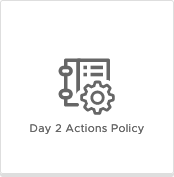
- Enforcement Type - Hard, or Soft - a Hard Policy will override a conflicting Soft Policy
- Role - select the Administrator, Member or a custom role that the policy will apply to
- Actions - select one or more out-of-the-box Day 2 actions, or Custom Day 2 actions to enable using this policy
Example Day 2 Actions Policy
In the example day 2 actions policy below, Members of the Development Project will be allowed to use the PowerOff, PowerOn, Reboot, Reset, Shutdown and Suspend day 2 actions on any deployed vSphere Cloud Machines.
Approval Policy
Approval policies control who must agree to a deployment or day 2 action before the request is provisioned.
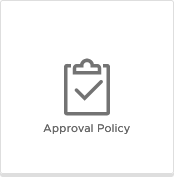
- Approver mode - Any allows any user from the Approvers group to approve the request, All requires all of the users in the Approvers group to approve the request
- Approvers - a list of users or groups that can approve the request
- Auto expiry decision - automatically approve or reject the request if the Auto expiry trigger is reached without an Approver responding
- Auto expiry trigger - the number of days (up to 7) Approvers have to respond before the Auto expiry decision takes effect
- Actions - a list of actions that the approval policy will apply to
Example Approval Policy
In this example approval policy the scope is limited to the “TMC Kubernetes Cluster - Custom” Cloud Template in the Production Project. Any use of the custom Day 2 action to add a new Node Pool to the resource will require approval by the listed Approvers.
Links and References
- How do I configure Service Broker approval policies
- How do I entitle deployment users to Service Broker day 2 actions using policies
- How do I configure Service Broker deployment leases using policies
- How do I configure Service Broker resource quotas using policies
- How do I configure scope in Service Broker policies
- How do I configure deployment criteria in Service Broker policies
- How are Service Broker policies processed


